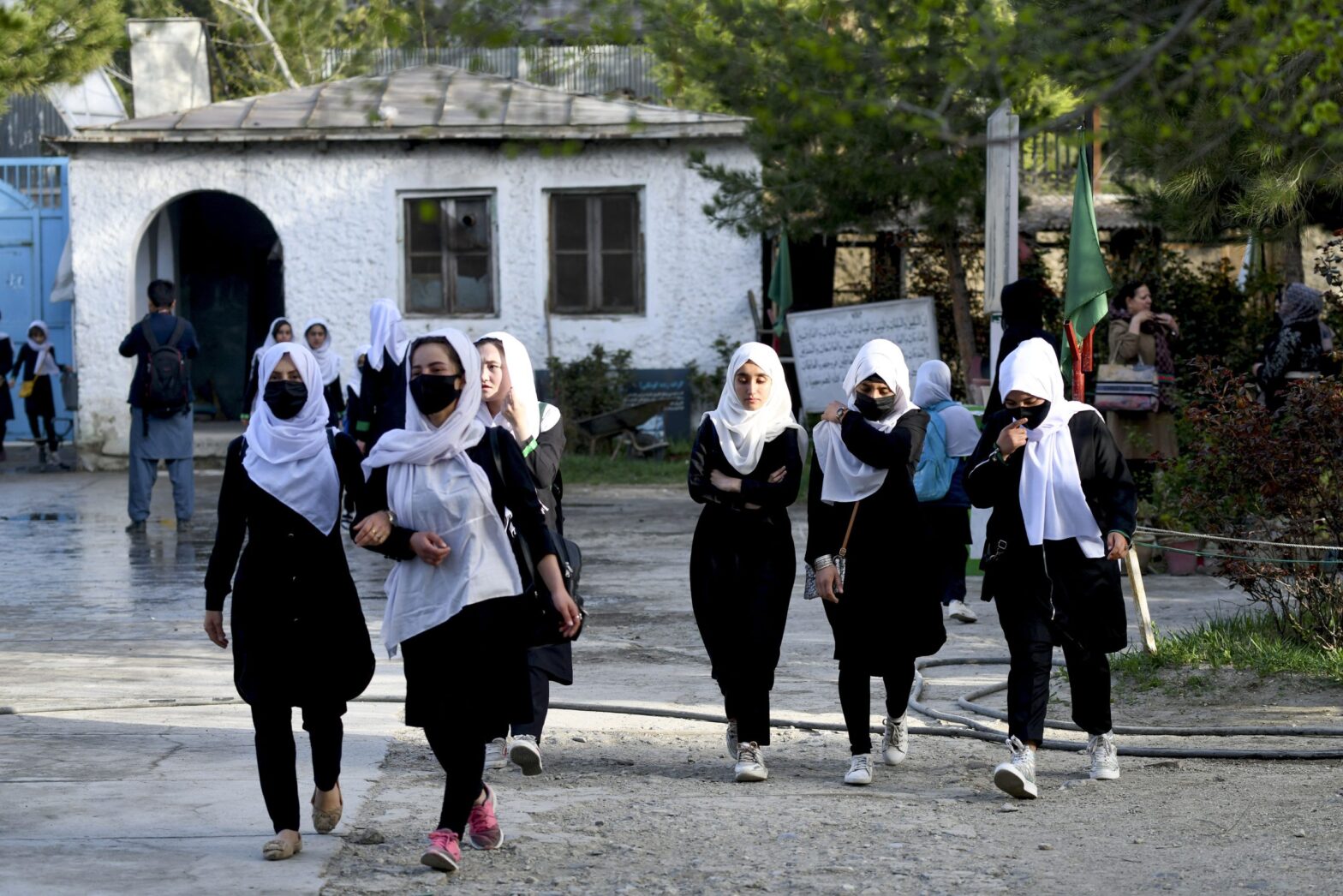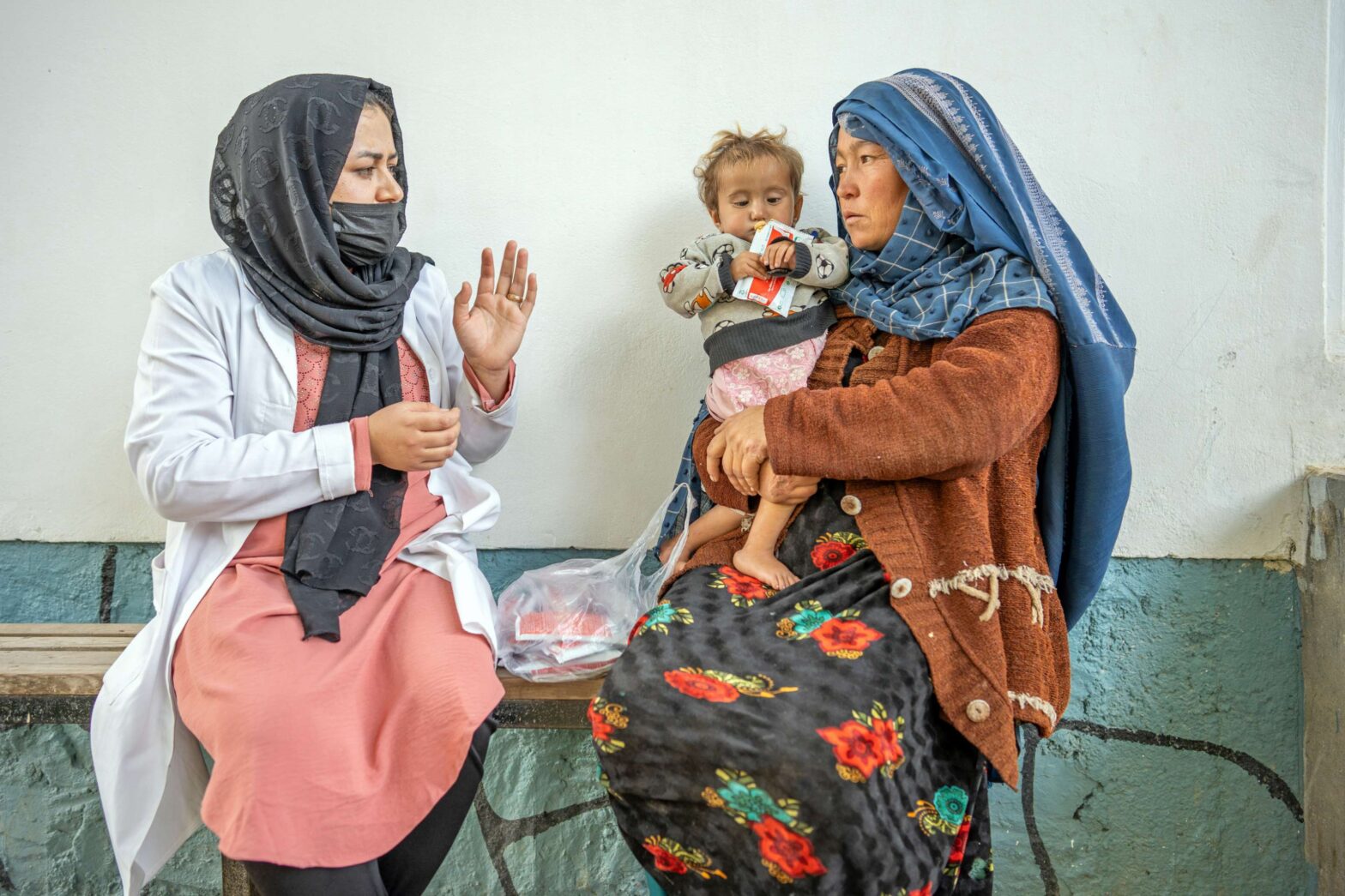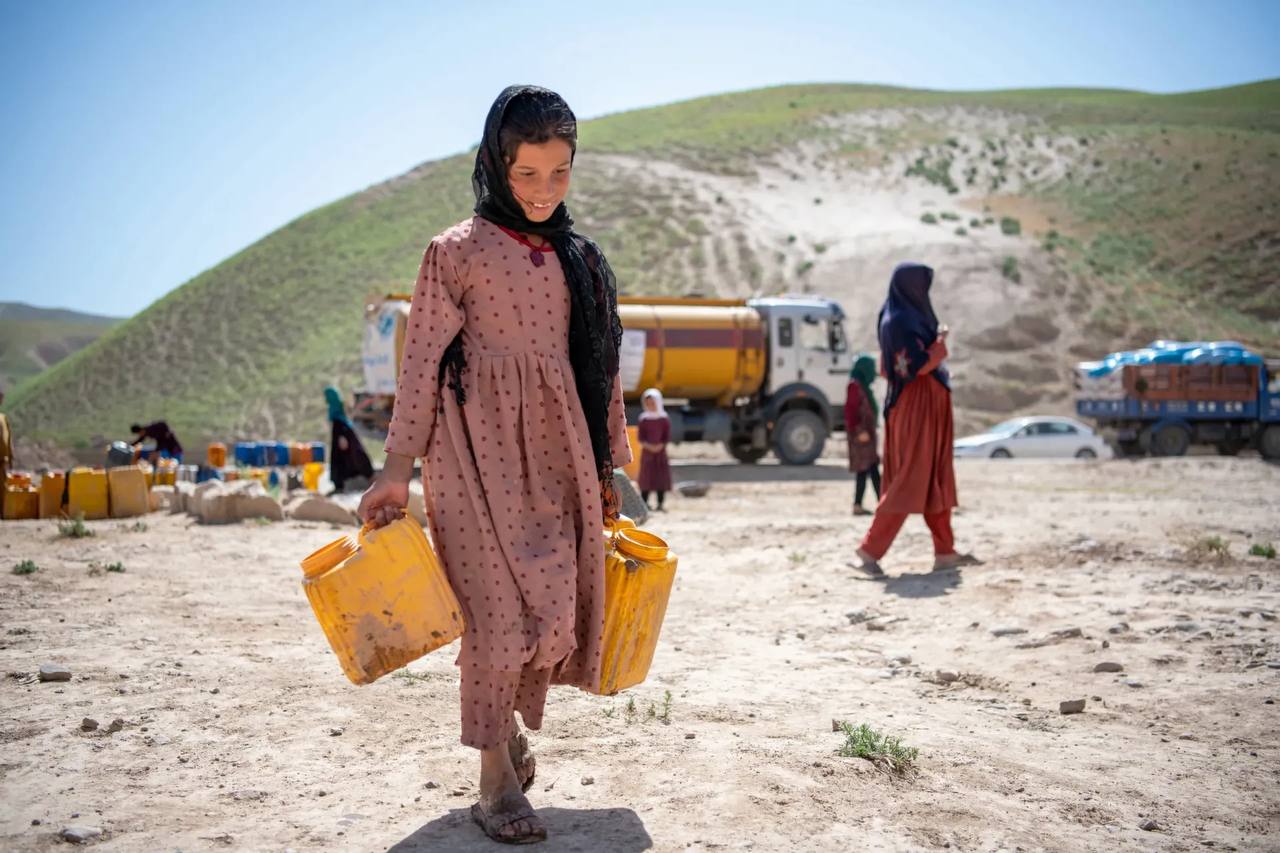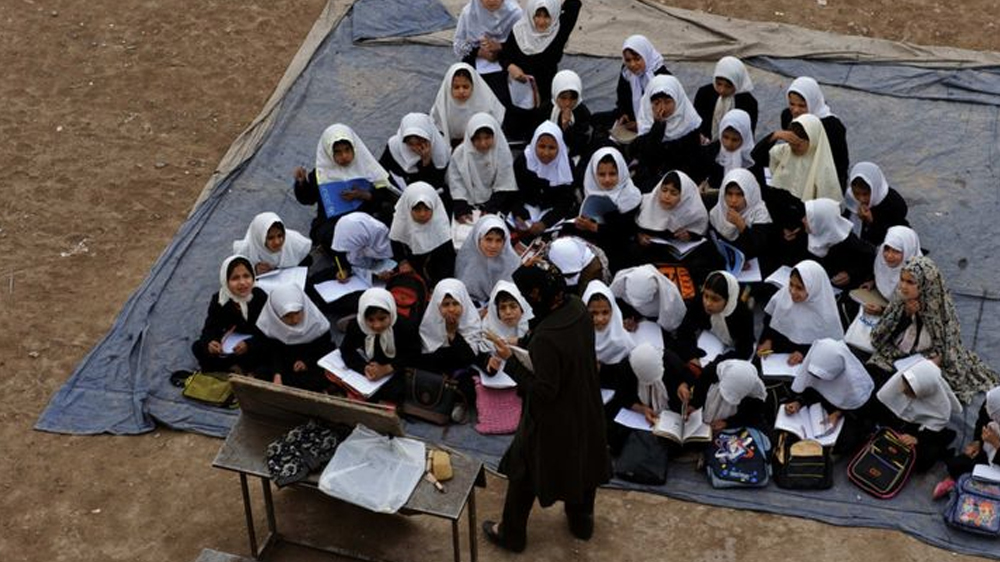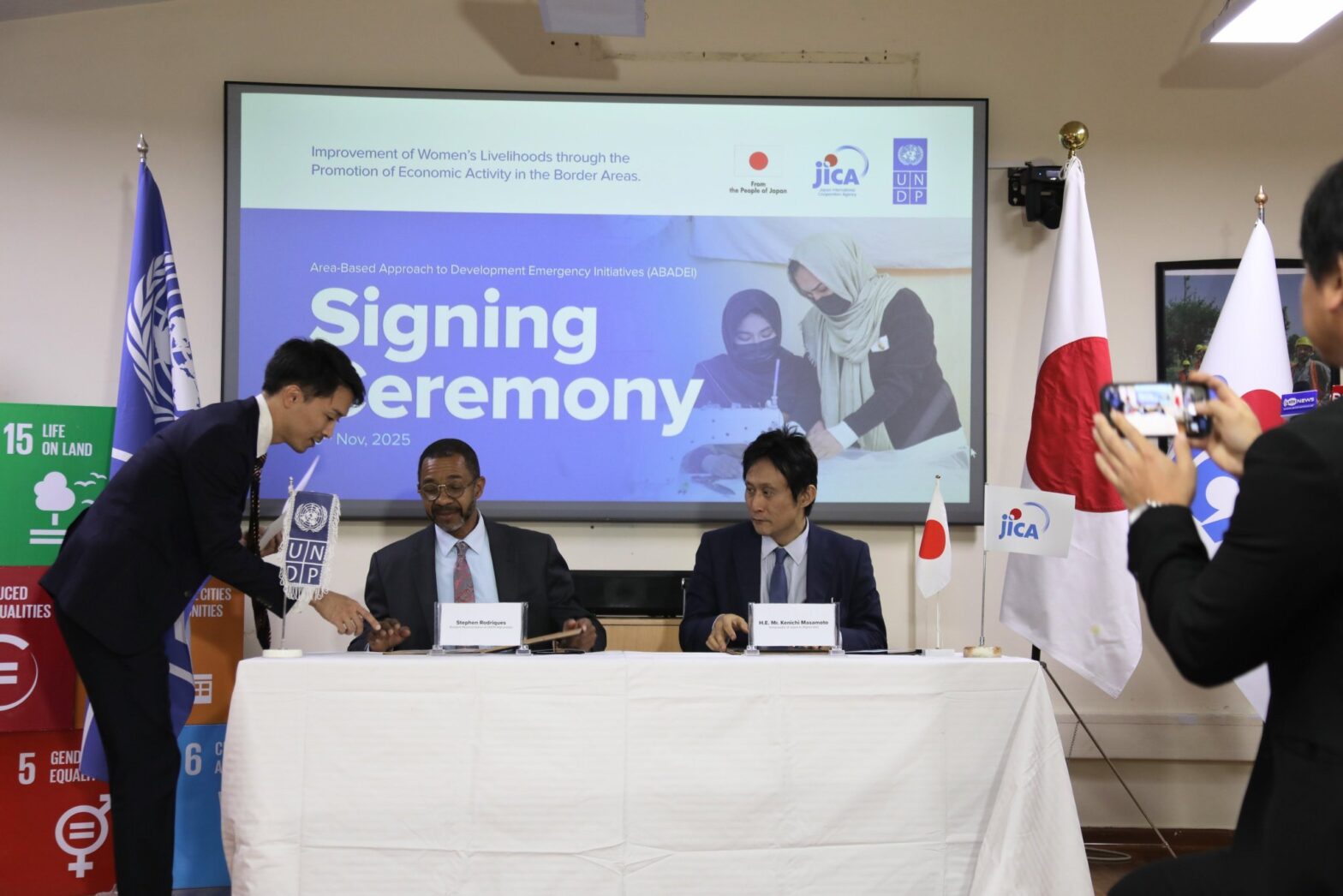
The United Nations Development Programme (UNDP) has announced that Japan has contributed 864 million yen, equivalent to $5.6 million, to improve livelihoods and support economic opportunities for women and girls in Afghanistan. In a statement released on Tuesday, November 27, the agency said that a memorandum of understanding was signed between Kenichi Masamoto, Japan’s Ambassador to Afghanistan, and Stephen Rodriguez, UNDP’s Representative for Afghanistan. With this contribution, a two-year project titled “Enhancing Women’s Livelihoods through Promoting Economic Activities in Border Areas” will be launched. According to the statement, the project will utilize 73 small-scale initiatives to improve access to community-based productive infrastructure, financial resources, and markets for 2,100 women-led small and medium enterprises, thereby promoting inclusive local economies. The statement also quoted Ambassador Masamoto as saying: “Japan stands with the people of Afghanistan—especially women—in their pursuit of economic independence and human dignity.” He added: “This project will help create safe and effective opportunities for women so they can support themselves and their families.” Meanwhile, Stephen Rodriguez emphasized that this initiative builds on the previous project aimed at strengthening the economic engagement of women and girls in the private sector, which demonstrated that investing in women-led businesses is essential for a prosperous Afghanistan. In the previous project, UNDP supported 1,260 women-led businesses and created more than 2,500 jobs, 87% of which were filled by women. Nearly 90 infrastructure projects under this framework are also nearing completion. This development comes as the interim Afghan government has imposed widespread restrictions on the economic and social activities of women since regaining power, banning women and girls from working in government offices, domestic and international NGOs, and forcing the closure of several women-led businesses.


